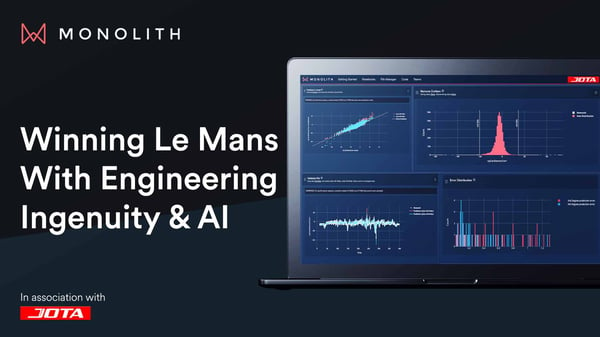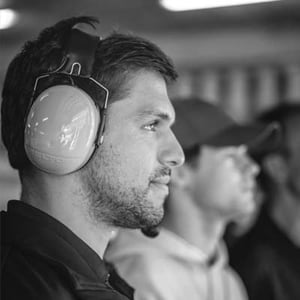
Replacing 648 billion data points with AI
During a Le Mans race, the Jota engineering team produces 7500 data points per second…and as you probably know, the race lasts 24 hours. Attempting to analyse billions of data points in real-time to win the world’s most competitive car race is just the start of Jota’s challenges. Others include:
· Engineering a competitively aerodynamic car
· Optimising vehicle performance without sensor data
· Predicting tyre performance to optimise frequency and timing of pit stops
With only seconds separating those who take the podium from other competing teams, the winning edge comes down to engineering ingenuity – and visionary use of technology.
How did the unlikely team from Kent win Le Mans? Jota performance engineer Joao Ginete will go behind the scenes to demonstrate how their team replaced sensor data with self-learning models to measure and monitor tyre degradation and used AI and collective ingenuity to take the podium at the world’s most competitive motorsports race.
Learning objectives:
- Explain how to build self-learning models to reduce test scenarios
- Provide guidelines to engineers to identify good AI use cases
- Show how self-learning models can accelerate testing and increase ROI
Who should watch?
Meet our speakers

Joao Ginete
Joao has worked in Motorsports his entire career. After starting out as an aerodynamicist for two leading Formula One teams, he then moved to Race and Performance Engineering in various series like the European Le Mans Series, Japanese F3 and the World Endurance Championship.

Jousef Murad
Jousef is responsible for product marketing at Monolith. He studied mechanical engineering at the Karlsruhe Institute of Technology (KIT) where he focused on computational mechanics, turbulence modeling & AI.

